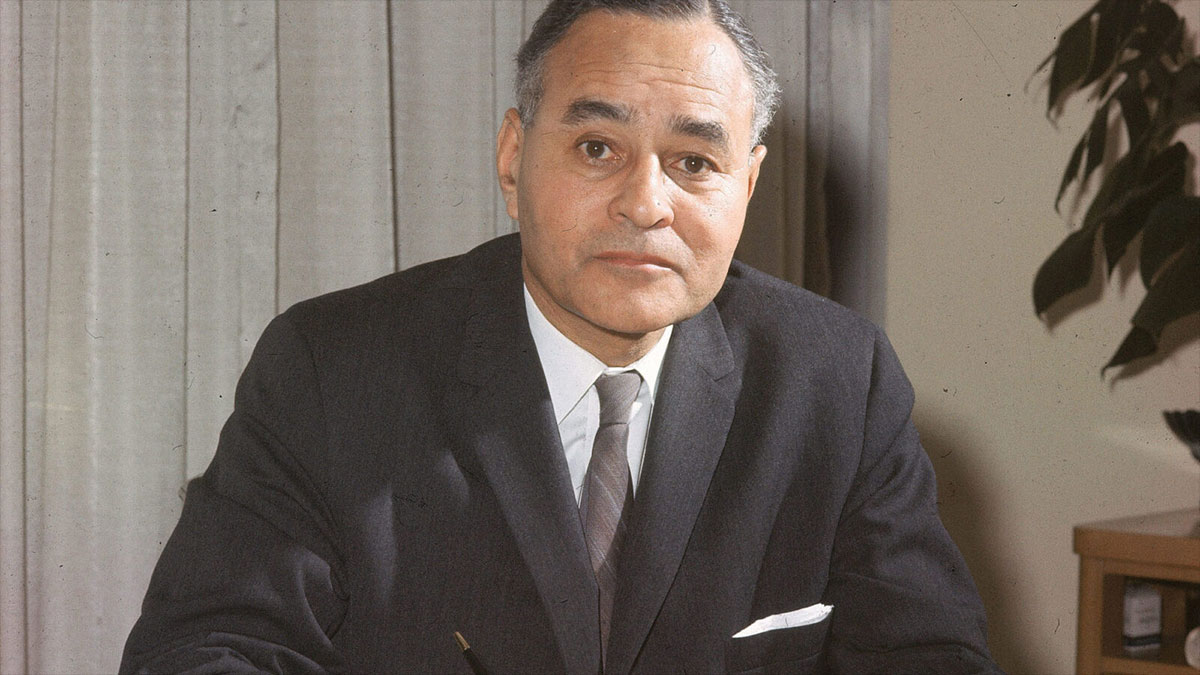
Dec. 10, 1950

U.N. diplomat Ralph J. Bunche became the first Black American and the first person of color to win the Nobel Peace Prize.
Born in Detroit, his parents were poor, and both became ill, dying by the time he reached 13 years of age. After their deaths, he and his young sister went to live with his grandmother in Los Angeles. He sold newspapers, helped lay carpet and did other odd jobs to help the family meet ends.
At Jefferson High School in Los Angeles, he overcame prejudice to excel in both debate and sports, becoming valedictorian. He received an athletic scholarship to UCLA, where he played for the basketball team and was valedictorian of his 1927 class. He then won a scholarship to Harvard University, where he completed his master’s a year later, and would later become the first Black American to receive a PhD in political science in the U.S.
He began working at Howard University, where he became one of the leaders of a small cadre of black intellectuals whom W.E.B. Du Bois labeled the “Young Turks.” Unlike their predecessors, the Young Turks believed that issues affecting Black Americans could be attacked on the basis of class, rather than race — an integrationist approach that Martin Luther King Jr. embraced.
He became so well-known that President Franklin Roosevelt made him a member of the “Black Cabinet,” which consulted him on minority issues.
Bunche also worked with sociologist Gunnar Myrdal in the monumental study of U.S. race relations, published as “An American Dilemma” in 1944. In addition to matters of race, Bunche became an expert on colonialism, and in 1946, he began working for the United Nations. Two years later, when the UN’s chief negotiator in the Arab-Israeli conflict was assassinated, Bunche took his place. After eleven months of negotiating, Bunche obtained signatures on armistice agreements between Israel and the Arab States.
Upon his return to America, he received a ticker tape parade in New York City, and Los Angeles created a “Ralph Bunche Day.”
In accepting the Nobel Prize, Bunche declared, “The objective of any who sincerely believe in peace clearly must be to exhaust every honorable recourse in the effort to save the peace. The world has had ample evidence that war begets only conditions which beget further war.”
He became one of the nation’s most revered figures, and in 1963, President John F. Kennedy awarded him the Presidential Medal of Freedom, the nation’s highest civilian award. Two years later, Bunche joined King in the Selma march. After his death in 1971, UCLA and the City University of New York established centers named after him. A PBS documentary detailed his life.

